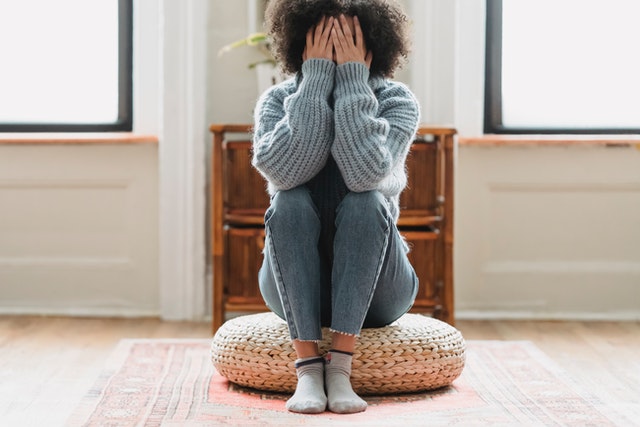What Are Common Signs of Anxiety in Women?
Anxiety isn’t biased against one gender. It can impact everyone. However, it can sometimes be difficult to pinpoint specific symptoms of anxiety because that impact can be different from person to person.
While many men and women experience the same symptoms of anxiety (depending on the severity of the condition), there are some common signs for both genders that can make it easier to determine what you’re dealing with.

If you’re a woman, recognizing some of the common signs of anxiety can help you receive a proper diagnosis and treatment. It will also be easier to identify your specific “triggers” and learn how to manage those symptoms in healthy, safe ways.
So, what are common signs of anxiety in women, and how can you manage the condition on a daily basis?
Excessive Fear or Constant Worrying
This is often the most prominent and noticeable sign of anxiety in women. It’s normal to worry about things sometimes. However, anxious worrying is often rooted in fear, and may not even be realistic.
It’s not uncommon for women with anxiety to come up with worst-case scenarios or “what if” situations to fuel their fear and worry.
This anxiety can sometimes lead to behavior changes. If you ever find yourself avoiding certain situations (or even people) because you know they will trigger your anxiety, it’s likely you’re experiencing more than “normal” worry.
While trying to steer clear of your triggers can be a short-term temporary fix and a way to manage symptoms, it’s not sustainable or healthy.
Physical Symptoms
Anxiety is a mental health issue, but it often presents itself with a variety of physical manifestations. Some of the most common physical symptoms of anxiety include:
- Increased heart rate
- Sweaty palms
- Restlessness or irritability
- Body aches or headaches
- Upset stomach
Obviously, these are physical issues that can serve as indicators for plenty of things. However, if you experience them whenever you’re feeling especially worried about something, it’s a pretty clear sign that anxiety is taking over your thoughts.
Difficulty Sleeping
Another common sign of anxiety in women is having trouble sleeping.
Unfortunately, anxiety creates a vicious cycle when it comes to sleep. Having anxiety makes it hard to get the rest you need because your racing mind keeps you awake. However, the longer you’re awake and frustrated about not sleeping, the greater your anxiety becomes.
This lack of sleep can lead to changes in behavior, irritability, and cause you to experience difficulty while trying to concentrate or focus on something.
As you might expect, that can lead to problems in both your personal and professional lives.
What Can You Do?
If you’re experiencing any of these signs, the best thing you can do is talk to a mental health professional.
Anxiety is manageable and treatable. However, it’s extremely hard to treat it on your own, and it won’t go away by itself.
A therapist can help you discover the underlying cause(s) of your anxiety. By getting to those root causes, you’ll have a starting point to grow from, so you can start to fight back against your fears.
When you work with a therapist, you’ll also learn coping skills to manage your symptoms each day. Doing so will cause them to feel less overwhelming, and you’ll start to feel like you have some control over your life once again. Many women go too long without seeking out professional help, becvause they’re so used to having anxiety and almost see it as a part of them. You can heal from anxiety. So, if you’re feeling any (or all) of the above signs, don’t hesitate to reach out to a therapist to get the help you deserve.
Click here for more information on Therapy for Women.



